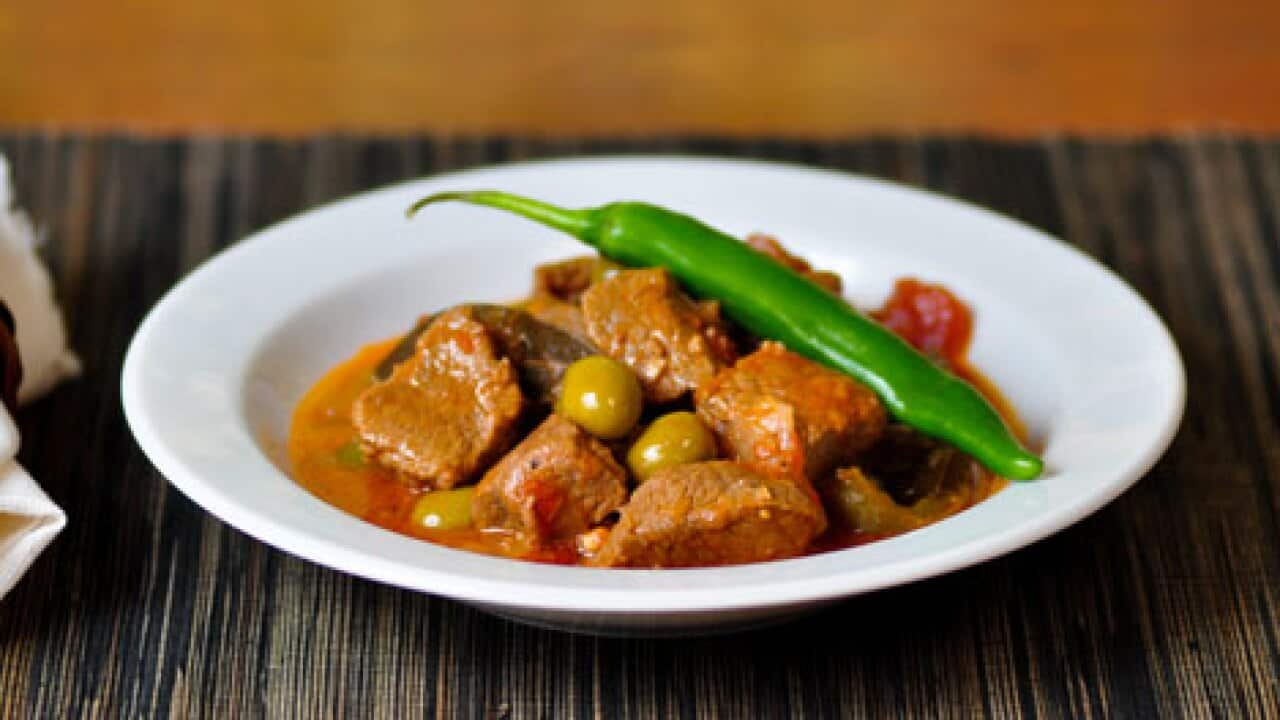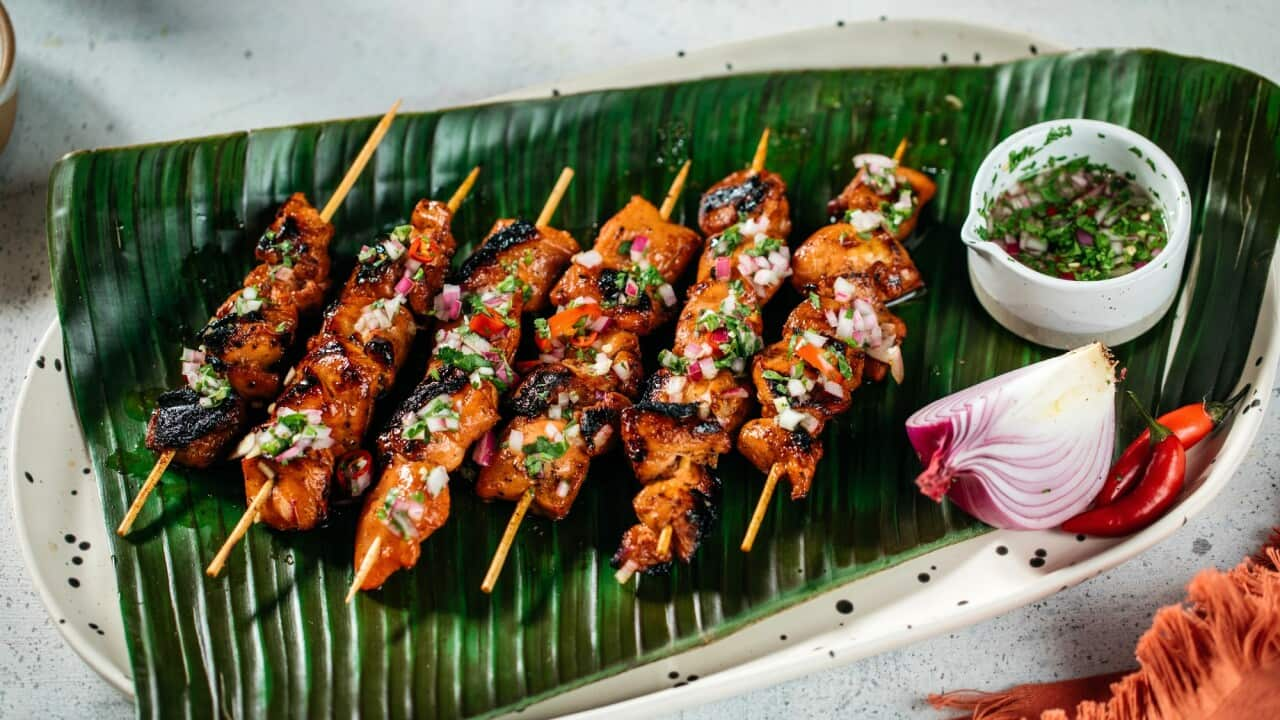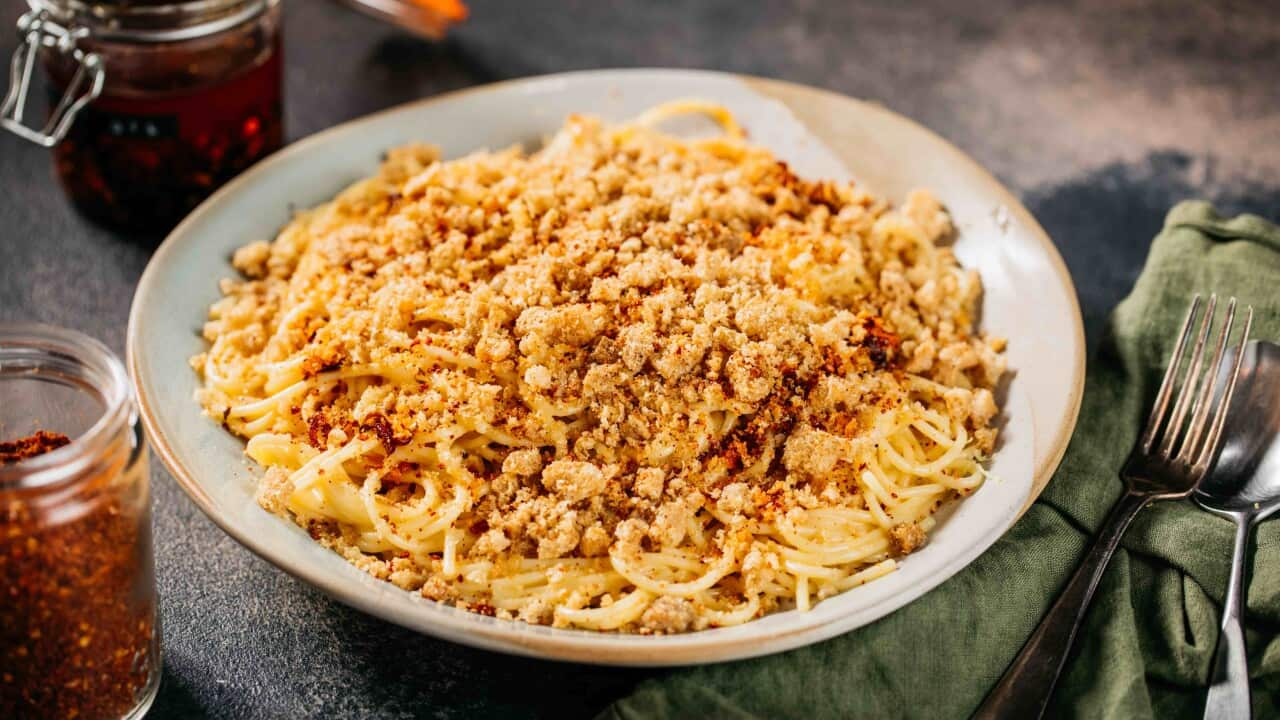At any Filipino birthday, baptism or Christmas party, tomato-based meat stews in chafing dishes will undoubtedly make an appearance. These well-loved red stews I speak of are called kaldereta, menudo, mechado, afritada and pochero.
These one-pot dishes are popular in Filipino cuisine, but I have to be totally transparent and admit to this almost-blasphemous, uncomfortable secret: I have a hard time telling them apart. Even after I've been told which one is which, I have a tendency to forget.
They all look similar and they all go well with rice, but each dish has something that makes it unique. So for those who harbour the same secret I do, or who want to make sure they're identifying the stews correctly at their next Filipino party, here is what makes each dish special.
Kaldereta
Rooted in the Spanish word 'caldera', meaning 'cauldron', this stew is made of beef, chicken, pork or goat meat and vegetables such as carrots, potatoes, bell peppers and green olives.
KALDERETA RECIPE

Lamb kaldareta
Kaldereta with goat meat signifies a special occasion since this meat isn't as common as chicken, pork or beef. Since this type of meat is rather gamy, it is first marinated in salt, pepper and vinegar for an hour before cooking.
The thick, tomato-based sauce is spicy and savoury because of the chilli peppers and liver spread. Some people even garnish the stew with cheese to deepen its umami flavour.
Menudo
Menudo in Spanish means 'small' because each ingredient is cut into small pieces.
Pork and pork liver are the standard proteins of the stew.
The vegetables and other ingredients include potatoes, tomatoes, carrots, green peas and raisins. Menudo can also have Filipino hotdogs, chickpeas and quail eggs.
The raisins give the stew a whisper of sweetness to it compared to the kaldereta's, which is spicier.
Mechado
Mechado derives its name from the Spanish word 'mechar', which means lard.
The traditional way to make mechado is to place pork fat in the middle of the beef, then roll and sear it. After this, cook the beef in a tomato-based sauce.
The beef is also marinated with soy sauce and an acid, such as calamansi or vinegar, for tang.
Over the years, some cooks have done away with the beef rolling for easier and quicker cooking.
This dish doesn't have too many vegetables, with carrots and potatoes being the two typical ones.
Afritada
Afritada usually consists of chicken, although you may choose to use another meat such as pork.
The name of this dish is rooted in the Spanish word 'fritada', meaning 'fry'. The first step is to fry the meat alongside vegetables such as carrots, potatoes, bell peppers and green peas.
After frying, add these ingredients to a simple tomato sauce mixed with garlic and onions. Pochero
Pochero

Chicken afritada. Source: Alan Benson
Pochero (or puchero) means stew pot and its ingredients are very similar to the other stews. It can be made of beef, chicken or pork. The dish can contain vegetables and legumes such as carrots, potatoes, tomatoes and chickpeas.
You can also add other greens to the mix such as string beans and bok choy.
However, pochero is distinguished from the other Filipino tomato-based stews with saba (plantain) bananas and chorizo.
The bananas give the dish a fruity sweetness while the chorizo gives it a smoky, salty punch.
FILIPINO FLAVOURS

Memories and modern interpretations of the Filipino turon










